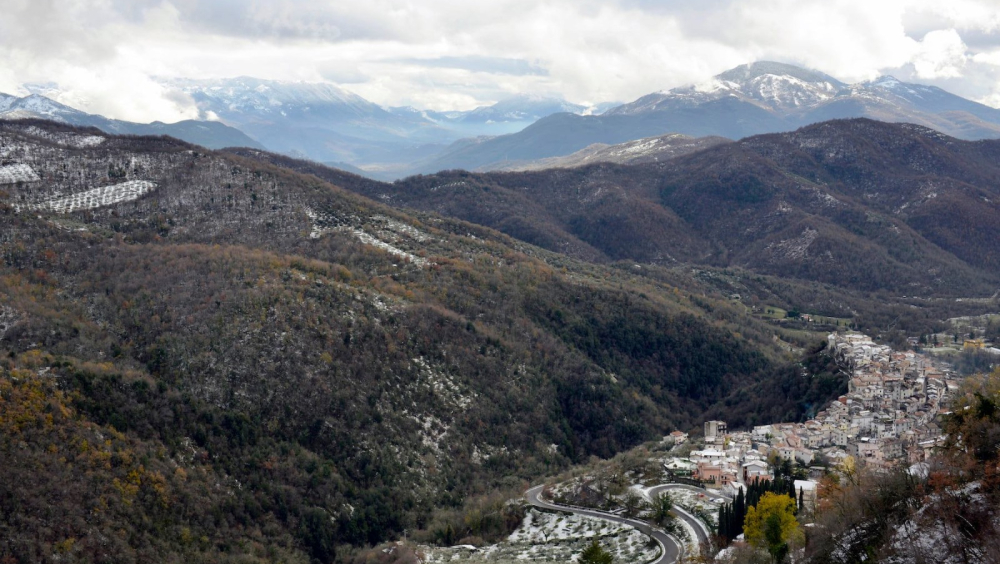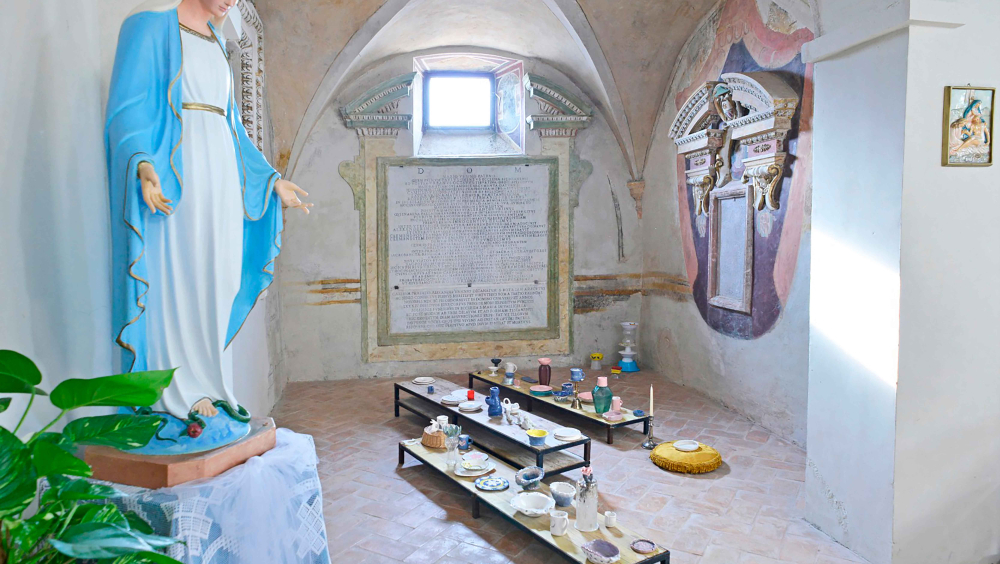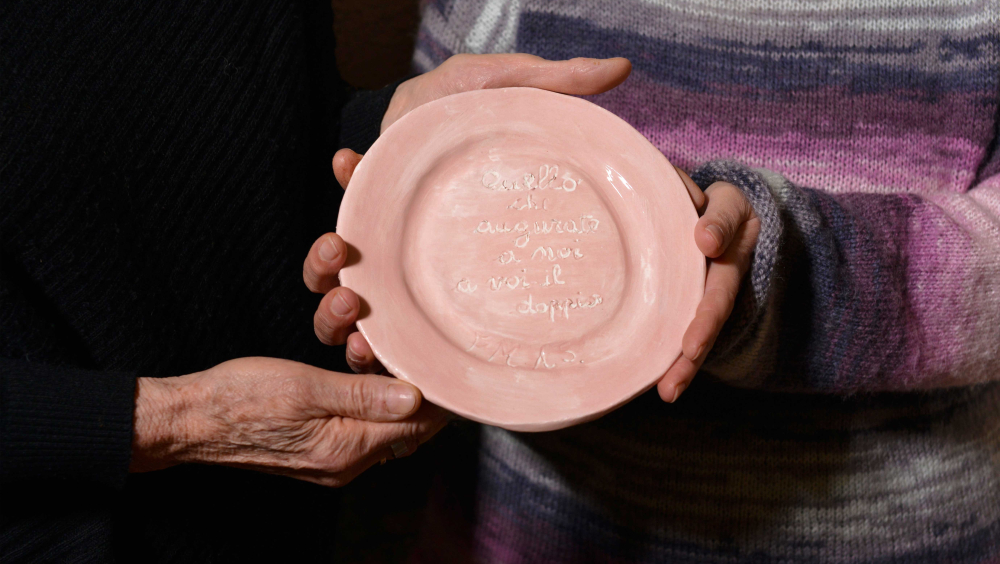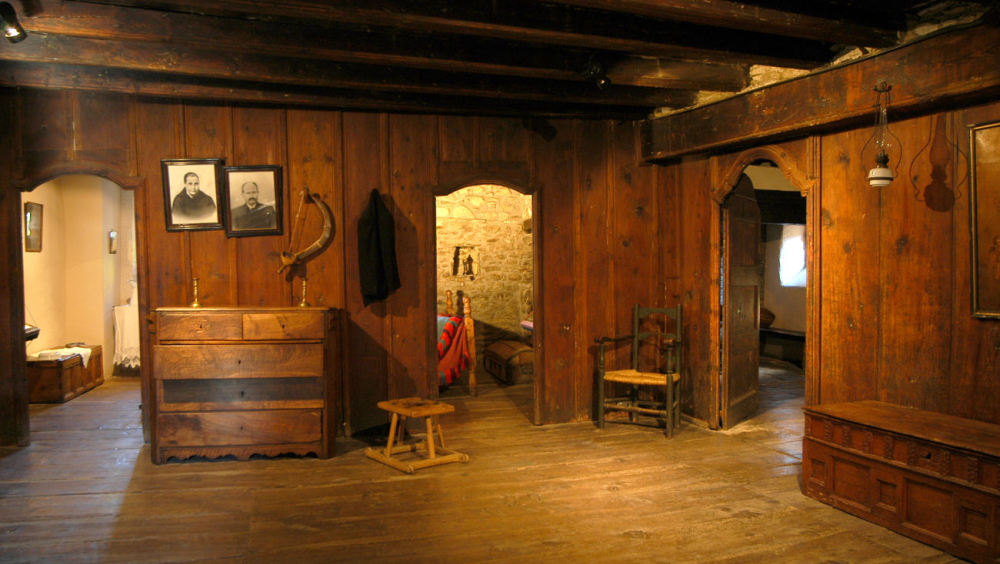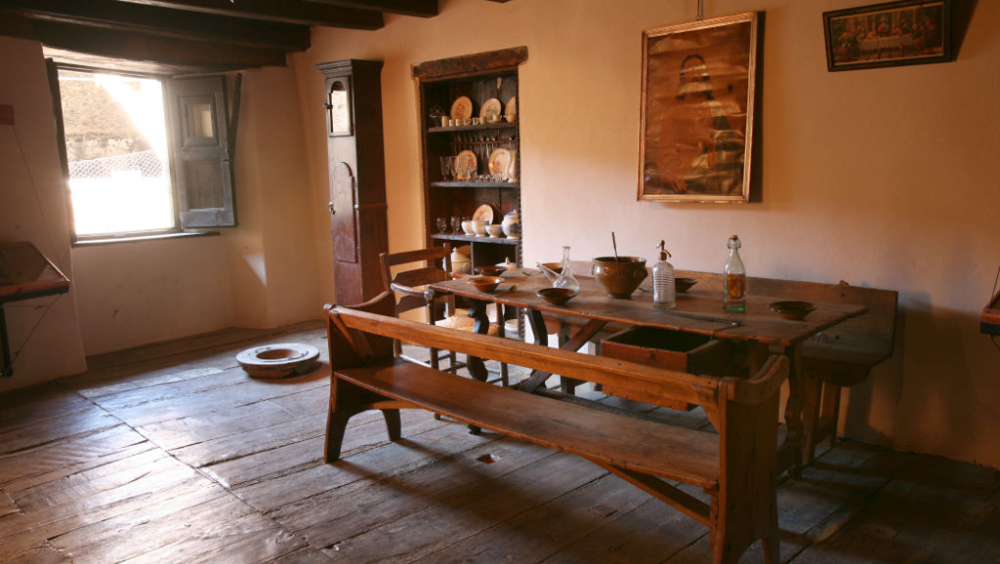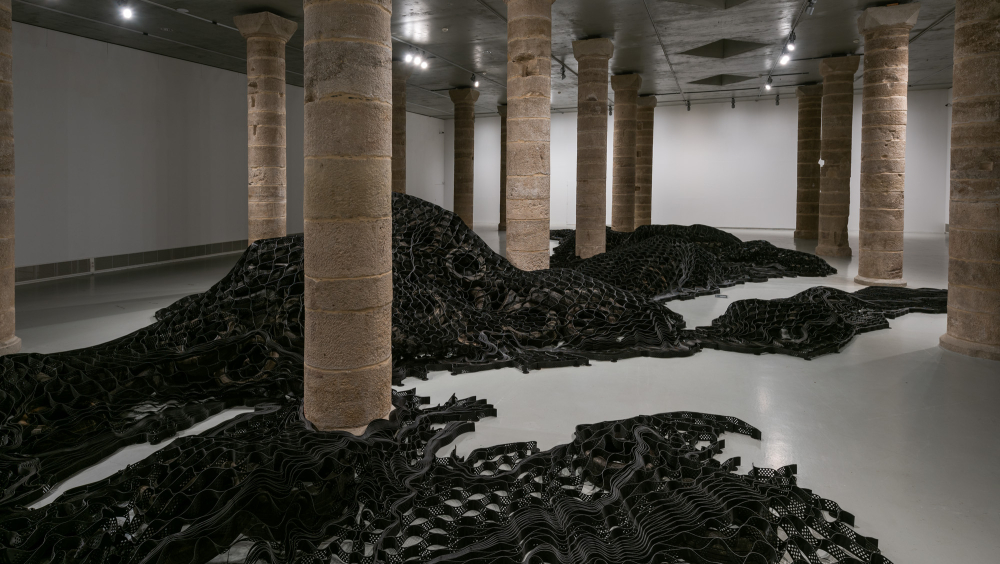“Per amor”. Artistic research through care, community and heritage.
Our story will be developed at Ecomuseu de les Valls d’Àneu (1994), an heritage museum located in Esterri d’Àneu, in the Pyrenees –close to the Spanish-French frontier–. Esterri d’Àneu is a town of less than 1.000 inhabitants, the second most largest and well-serviced village from the region (Pallars Sobirà). In the current context from the Pyrenees, characterized by depopulation and the lack of services, Ecomuseu is one of the few heritage and cultural institutions of reference in the area. Furthermore, the museum aims to participate and have an impact on the economical and social development of the valley and the region through research, conservation, dissemination and restitution of the local heritage.
About the organization which is submitting the story, this is a team built by the collaboration between two cultural institutions and a visual artist, all based in different territories from the same province of Lleida. Ecomuseu de les Valls d’Àneu, Centre d’Art la Panera (2003) –the contemporary art center from the city of Lleida– and the artist Alicia Santamaria, who lives and works in the same region as the museum.
The main objective of the project is to establish a dialog between contemporary art creation and heritage, in order to interact with the past and the present across the museum’s collection and collaborative artistic practices taken by different collectives from the territory in vulnerable situations. This will take place with Alicia Santamaria’s guidance runned from the project Per amor; especially focused on the study of the relation between the care and the sense of community.
About the methodology, the formalization of the project can become embodied and socialized as a constellation of objects which portrays the encounters, ideas and links that can be collected by the participants; the community formed by neighbours, caregivers and the cultural agents involved.
Per amor is a creation and art research project about care; specially focused on the study of the relation between the care and the sense of community in the rural environment through ceramics and collaborative practices.
To explore this, the main ongoing methodology process of the project is to run different pottery workshops to make objects and tableware pieces with the people from different villages located in a specific area from the Catalan Pyrenees. The purpose is to transform the workspace into a meeting point for the neighbours and specific collectives –in this case, care workers and people who are taking care of a loved one at home– where they can work with ceramics and share ideas about the project’s research through conversations; with the aim to create a mutual support dynamic and a safe space. In this way, little by little, a common knowledge can be woven from intimacy and everyday practices which can allow us as a community to collectivize ideas about identity, depopulation, memory, heritage, recognition with the territory, belonging to the community, affections, the family, the domestic.
In relation to our story, about this collaboration between Ecomuseu, Centre d’Art La Panera and the artist Alicia Santamaria; it is a project that aims to generate knowledge from contemporary art and the the local community toward in order to find new ways of interpretation and communication from the museum’s heritage collection. The working strategy of these practices are focused in artistic research, community-engaged art in an inclusive way (intergenerational and non ableist), and the creation of a multidisciplinary team formed by museographers, curators, anthropologists, ethnobotanists, musicians, historians, visual artists, social educators, nurses and psychologists.
Considering the social dynamics of the village and the different cycles of life, the project will be developed in three phases: spring, summer and autumn. The first one, in the spring, will take the form of a pottery workshop for a group of vulnerable and local people, led by Alicia Santamaria and Júlia Carrera (a specialist from the museum’s staff); working on the idea of the object as a community bond. In the summer, there will be a day of talks related to the project’s research, with the historian Pau Chica and Alicia Santamaria. In the final phase in the autumn, the proposal will have the same format as in the spring, except that the main concept of the ceramic workshop will be Death, through rituals and the magical traditions of the valley. At the same time, during this period, the artistic research through the care will be carried out by working with the Ecomuseu’s archive and oral memory.
This will help to structure this dialogue between contemporary creation and heritage through a whole programme of activities, that will include: a community pottery project, a musician’s performance, informative talks to highlight the tangible and intangible heritage of the Ecomuseu, and an exhibition in the same museum; In addition, an artist’s book will be produced, compilating the research and the artistic creation process with a photographic reporting of the entire project.
About the partners:
Alicia Santamaria (1994) is a Spanish artist based in Pallars Sobirà, who has participated in different national and international grants and awards. Per amor is based on a previous experience developed in 2021, thanks to the residency programme grant Exchange 2021 offered by Homesession (Barcelona), for going to the Centro d’Arte e Natura di Civitella di Licenza cultural space in Licenza (Italy). The residence was in Licenza, a 900 inhabitants town located in the mountainous area of the Lazio region (Roma), and she worked with its museum network that manages the local archaeological heritage. Establishing the project’s guidelines of Per amor, the artist's proposal for this residency was the same methodology on which our story is based.
Ecomuseu de les Valls d’Àneu, it is a museum dedicated to the ethnography of the Àneu Valleys and the rest of the region (Pallars Sobirà). Inaugurated in 1994 and located in the municipalities of Esterri d'Àneu; the museum was conceived as a living entity –based on research, conservation, dissemination and restitution of the integral heritage– which wants to participate and influence in the development of the Àneu valleys and the rest of the region.
Going beyond the scope of traditional museology, Ecomuseu allows to relate monumental, natural and ethnographic elements in the immediate environment of man and recover ways of life from the end of the 19th century, and also resituates the objects in their place of origin to explain the organization of life in this territory.
The museum has obtained several awards and distinctions:
National Popular Culture Award granted by the Generalitat de Catalunya (1995), nominated for the European Museum of the Year Award (1998), Award from the Ministerio de Medio Ambiente for his contribution to the conservation of Protected Natural Areas in Spain (1999), Extraordinary Museum Award from the Association of Museologists of Catalonia (2010).
The museum is organized through a Consortium and is a non-profit associative public entity, with its own legal personality and full capacity to achieve its goals and of indefinite duration. Since its foundation in 1994, the director of the Ecomuseu has been the anthropologist Jordi Abella Pons. The museum has played a prominent role in the cultural management of the territory, uniting the management of different types of cultural, ethnological, immaterial, artistic and natural heritage.
La Panera Art Center is a platform for the production and dissemination of contemporary visual arts that goes beyond the exhibition, is positioned at the intersection of research and creation with education and public programs, and produces artistic projects in contexts as varied as schools, health centers or community services. It is a public equipment, the result of cooperation between the Lleida City Council and the Department of Culture of Generalitat de Catalunya.
Finally, la Panera watches over the creation of the territory and puts into circulation a critical culture, and facilitates spaces for exchange based on the divergent interests that cross the local sphere and the global art scene.
This project incorporates the guidelines of the European strategy for cultural heritage, with a project focused on engaging the local community, building networks of cooperation among communities through arts and heritage in depopulated rural regions. The culture, identity and heritage of this area of the Pyrenees of Lleida, is aligned with other high mountain areas throughout Europe, as regions from France, Italy, Germany, Spain, Romania, or Poland. It gives to this project a strong European dimension, regarding how to address the challenges of depopulation (economic factors, health education and culture) and how to link contemporary creation and heritage in places with few public services.
The fact of being an ecomuseum connects as well with the European museographic current initiated by the French museologist Hugues de Varine (1971) who defined this type of museum based on the identity of a territory. It is supported by the participation of its inhabitants, and created for the purpose of the growth of well-being and the development of the community.
Enhance the capacity of depopulated regions to use new creative languages to face their own heritage and help emergent artists to develop skills and to find opportunities to deal with some specific challenges such as aging population, low access to digital infrastructures and lack of employment. For this reason, most of our collaborators are young professionals settled in the territory of different disciplines such as history, music, psychology or visual arts.
The project also includes a public program, as talks, exhibitions, publications and media coverage which exchanges are possible with other european projects.
Project team:
Artistic direction: Alicia Santamaria. / Curatorship (la Panera): Roser Sanjuan. / Ecomuseu’s staff: Jordi Abella i Júlia Carreras. / Artistic research: Pau Chica and Jazmín Giudici. / Filmmaker: Ian Abecasis.
With the support of: Club Social Pallars (Mental Health Association), coordinated by Cleofé Campuzano.
